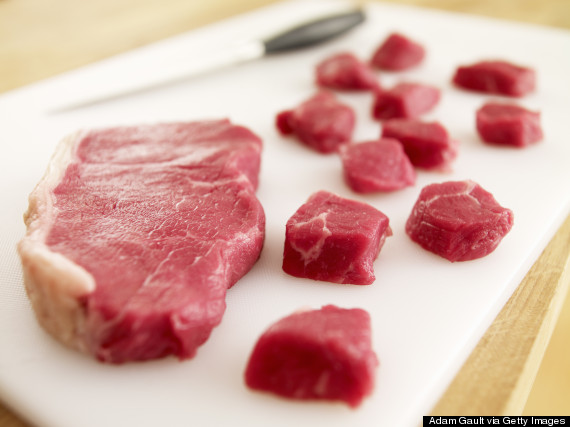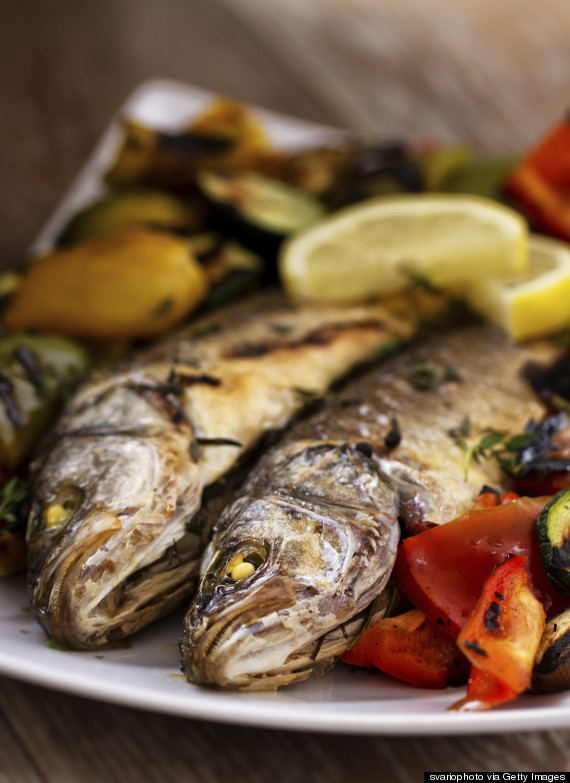The Paleo, Mediterranean and 5:2 diet plans were some of the most popular of 2013 but what is the expert verdict on them?
HuffPost UK Lifestyle spoke to a range of health experts who specialise in diet, nutrition and fitness to get their take.

The 5:2 diet
Definition: The 5: 2 is a diet incorporating intermittent fasting. You 'fast' for two days eating only 500 calories per day and for the other five days, you can eat whatever you want.
Can this diet help with diabetes? Dietitian Priya Tew says: "There is some limited evidence suggesting that the 5:2 diet can have beneficial effects on certain cancers and chronic diseases such as type 2 diabetes. Further research is needed to look at the long term effects of this diet on weight.
"Essentially this diet limits the calorie intake on 2 days so reducing the calories eaten in the week. The issues can come on the fasting days, when the fasting can impair concentration and mood plus making it difficult and not sensible to exercise, so this diet could be impractical."
Francesca Fox, diet and fitness expert from Francesca's Fit Kitchen says: "I am not a fan of anything to do with fasting because I feel it can be a short sighted approach to lifestyle and can lead to binge/purge cycle for anyone prone to disordered eating."
HuffPost UK blogger and dietitian Chloe Phillips says that "Although anecdotally I have seen some great success with this diet, in particular those types of people who have always struggled with the 'restriction mindset' and 'being on a diet' 24/7, there is still limited evidence supporting the ideal intermittent fasting pattern, ideal calorie consumption and the sustainability of the diet, therefore always should be carried out under medical and dietetic supervision."
Fitness author Sam Feltham is a fan of intermittent fasting but has some fundamental issues with 5:2.
"I openly encourage people to try it under the guidance of a structured program as long as they have no previous history of eating disorders. However, my problem with the 5:2 diet is that firstly it still goes by the hypothesis that to lose weight we need to simply expend more energy than we consume and secondly that you can just eat "normally" which usually means sugary cereal for breakfast, sandwiches for lunch and pasta for dinner a triple threat of Alzheimer's, diabetes and heart disease if I ever saw one.
"You can still develop these diseases void of how slim you are, 40% of people with metabolic syndrome have a normal BMI."

The Paleo diet
Definition: This diet works on the principles of 'what cavemen ate' on the basis that our digestive systems have not evolved in the last 10,000 years. To complement our bodies, this means no grains, legumes, and meat needs to be grass-fed beef, fish and chicken.
Sam loves this diet, saying: "It's the one I most prescribe to as firstly, it bases its theory on evolution, and secondly on what biochemical reactions we have from eating different foods.
"In clinical studies the Paleo diet has been shown to out perform the Mediterraneann diet and a commonly prescribed diet for type 2 diabetics metabolically and aesthetically in better weight loss."
Francesca says: "In principle I love the unprocessed, natural, whole food endorsement. However some zealots preach without thinking - strawberries /broccoli (and protein powder!) for example were not around 2,000 years ago! A great concept in theory."
Priya is not a fan. "The Paleo diet cuts out food groups without evidence to suggest why. Cutting out a wide range of foods such as grains can lead to the diet being nutritionally depleted which could have a knock on effect on health."
Chloe is also not convinced about the exclusion of food groups. "I agree with elements of this diet but when the Paleo diet is followed religiously it can too easily lead to nutritional deficiencies in particular Calcium and Vitamin D. Yes, processed foods can typically be higher in salt, sugar and fat, but not always, and can actually play a role in a healthy diet when the right choices are included in moderation."

The Mediterranean diet
Definition: It incorporates the traditional healthy living habits of people from countries bordering the Mediterranean Sea, says the NHS, and is largely based on vegetables, fruits, beans, whole grains, olive oil and fish.
"Lots of fresh veg, healthy fats (extra virgin olive oil, oily fish, nuts, etc) and not a pop tart/cereal bar/packaged good insight," says Francesca. "If I was to bracket my lifestyle to a "diet" as such, this would be it."
"The Mediterranean diet has some strong evidence behind it showing benefits on health reducing the risks of chronic diseases such as cardiovascular disease, obesity and type 2 diabetes," says Priya. "It is a well balanced and sensible approach to eating that is easy to follow. I would suggest this is less of a diet and more or a lifestyle.
It's a winner for Chloe too. "A big tick from me. This definitely shouldn't be considered a fad as it is a standard way of life for a large part of the worlds population and is associated with a lower risk of heart disease among other benefits.
"Rich in fruits, vegetables, legumes, fish and olive oil, I believe everyone can benefit from adopting this general style of eating. If weight loss is an aim however, people still need to be cautious of the high calorie contribution of the healthy fats in this diet."
"The Mediterranean diet is the one that currently has the most scientific evidence behind it," says Sam, "however, my problem is that yet again it still has the overriding way of thought to be that it is healthy because of the limitation of calories and not because of the biochemical reactions from the food you eat on it. Overall, I quite like the Mediterranean diet because it encourages real food and getting back in touch with cooking but I would ask people to hold the grains and keep the fat on the steak."
from Healthy Living - The Huffington Post http://www.huffingtonpost.co.uk/2013/12/27/mediterranean-diet-paleo-diet-52-diet-verdict_n_4493056.html?utm_hp_ref=healthy-living&ir=Healthy+Living
via IFTTT
HuffPost UK Lifestyle spoke to a range of health experts who specialise in diet, nutrition and fitness to get their take.

The 5:2 diet
Definition: The 5: 2 is a diet incorporating intermittent fasting. You 'fast' for two days eating only 500 calories per day and for the other five days, you can eat whatever you want.
Can this diet help with diabetes? Dietitian Priya Tew says: "There is some limited evidence suggesting that the 5:2 diet can have beneficial effects on certain cancers and chronic diseases such as type 2 diabetes. Further research is needed to look at the long term effects of this diet on weight.
"Essentially this diet limits the calorie intake on 2 days so reducing the calories eaten in the week. The issues can come on the fasting days, when the fasting can impair concentration and mood plus making it difficult and not sensible to exercise, so this diet could be impractical."
Francesca Fox, diet and fitness expert from Francesca's Fit Kitchen says: "I am not a fan of anything to do with fasting because I feel it can be a short sighted approach to lifestyle and can lead to binge/purge cycle for anyone prone to disordered eating."
HuffPost UK blogger and dietitian Chloe Phillips says that "Although anecdotally I have seen some great success with this diet, in particular those types of people who have always struggled with the 'restriction mindset' and 'being on a diet' 24/7, there is still limited evidence supporting the ideal intermittent fasting pattern, ideal calorie consumption and the sustainability of the diet, therefore always should be carried out under medical and dietetic supervision."
Fitness author Sam Feltham is a fan of intermittent fasting but has some fundamental issues with 5:2.
"I openly encourage people to try it under the guidance of a structured program as long as they have no previous history of eating disorders. However, my problem with the 5:2 diet is that firstly it still goes by the hypothesis that to lose weight we need to simply expend more energy than we consume and secondly that you can just eat "normally" which usually means sugary cereal for breakfast, sandwiches for lunch and pasta for dinner a triple threat of Alzheimer's, diabetes and heart disease if I ever saw one.
"You can still develop these diseases void of how slim you are, 40% of people with metabolic syndrome have a normal BMI."

The Paleo diet
Definition: This diet works on the principles of 'what cavemen ate' on the basis that our digestive systems have not evolved in the last 10,000 years. To complement our bodies, this means no grains, legumes, and meat needs to be grass-fed beef, fish and chicken.
Sam loves this diet, saying: "It's the one I most prescribe to as firstly, it bases its theory on evolution, and secondly on what biochemical reactions we have from eating different foods.
"In clinical studies the Paleo diet has been shown to out perform the Mediterraneann diet and a commonly prescribed diet for type 2 diabetics metabolically and aesthetically in better weight loss."
SEE ALSO:
Tried And Tested: Is It Worth Paying To See A Nutritionist?
Why Most Mainstream Diets Are Doomed To Fail
Francesca says: "In principle I love the unprocessed, natural, whole food endorsement. However some zealots preach without thinking - strawberries /broccoli (and protein powder!) for example were not around 2,000 years ago! A great concept in theory."
Priya is not a fan. "The Paleo diet cuts out food groups without evidence to suggest why. Cutting out a wide range of foods such as grains can lead to the diet being nutritionally depleted which could have a knock on effect on health."
Chloe is also not convinced about the exclusion of food groups. "I agree with elements of this diet but when the Paleo diet is followed religiously it can too easily lead to nutritional deficiencies in particular Calcium and Vitamin D. Yes, processed foods can typically be higher in salt, sugar and fat, but not always, and can actually play a role in a healthy diet when the right choices are included in moderation."

The Mediterranean diet
Definition: It incorporates the traditional healthy living habits of people from countries bordering the Mediterranean Sea, says the NHS, and is largely based on vegetables, fruits, beans, whole grains, olive oil and fish.
"Lots of fresh veg, healthy fats (extra virgin olive oil, oily fish, nuts, etc) and not a pop tart/cereal bar/packaged good insight," says Francesca. "If I was to bracket my lifestyle to a "diet" as such, this would be it."
"The Mediterranean diet has some strong evidence behind it showing benefits on health reducing the risks of chronic diseases such as cardiovascular disease, obesity and type 2 diabetes," says Priya. "It is a well balanced and sensible approach to eating that is easy to follow. I would suggest this is less of a diet and more or a lifestyle.
It's a winner for Chloe too. "A big tick from me. This definitely shouldn't be considered a fad as it is a standard way of life for a large part of the worlds population and is associated with a lower risk of heart disease among other benefits.
"Rich in fruits, vegetables, legumes, fish and olive oil, I believe everyone can benefit from adopting this general style of eating. If weight loss is an aim however, people still need to be cautious of the high calorie contribution of the healthy fats in this diet."
"The Mediterranean diet is the one that currently has the most scientific evidence behind it," says Sam, "however, my problem is that yet again it still has the overriding way of thought to be that it is healthy because of the limitation of calories and not because of the biochemical reactions from the food you eat on it. Overall, I quite like the Mediterranean diet because it encourages real food and getting back in touch with cooking but I would ask people to hold the grains and keep the fat on the steak."
from Healthy Living - The Huffington Post http://www.huffingtonpost.co.uk/2013/12/27/mediterranean-diet-paleo-diet-52-diet-verdict_n_4493056.html?utm_hp_ref=healthy-living&ir=Healthy+Living
via IFTTT
No comments:
Post a Comment